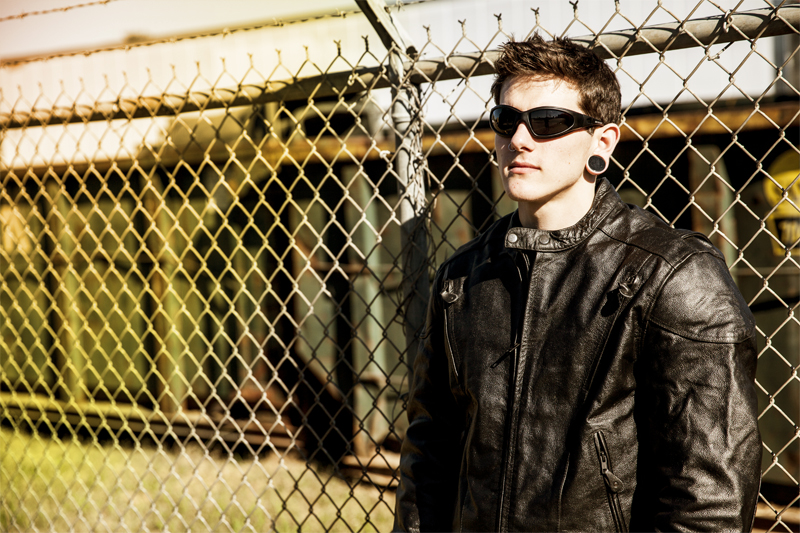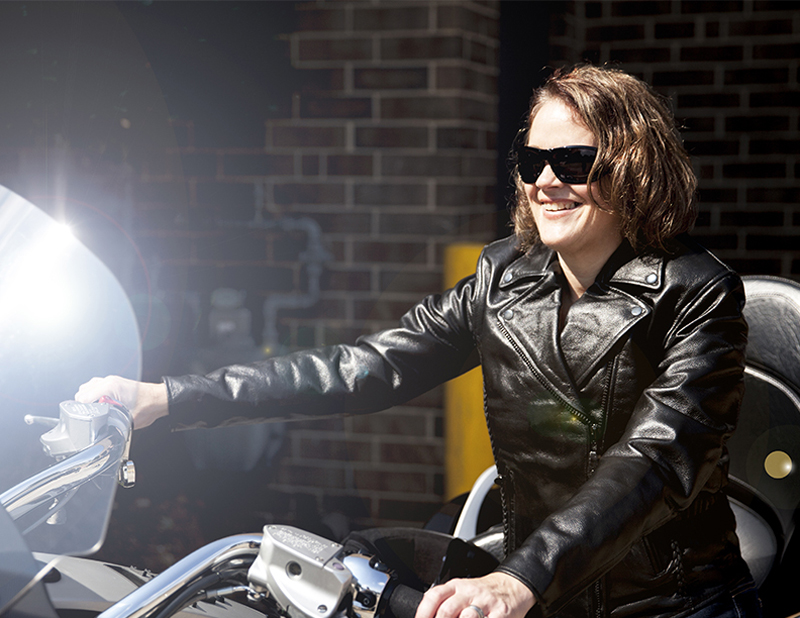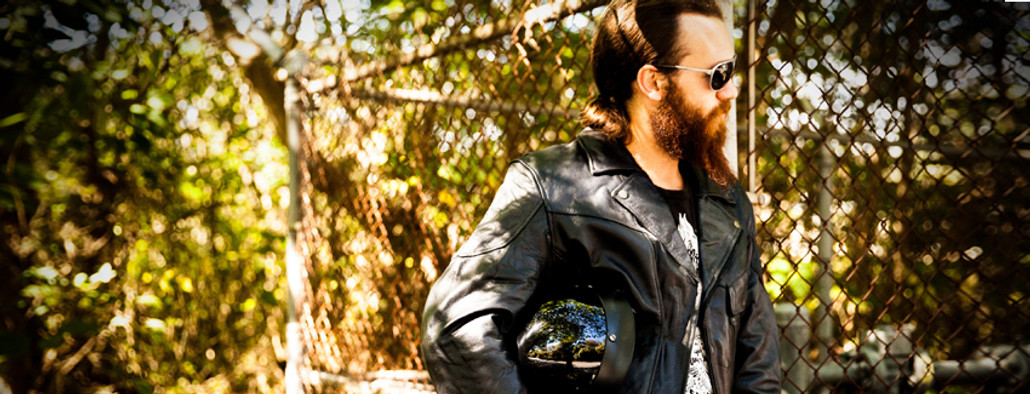Motorcycle Leather Jacket Guide
Posted by Team Motorcycle on Aug 27th 2016
| There is more to a good motorcycle jacket than style. High grade leather motorcycle jackets can protect you from abrasion and jackets with armors can protect you from impact and puncture damage. |
| Protection, Style, Comfort, Quality and Durability are the features you should be looking while buying a motorcycle jacket. It is also important to get the correct fit while purchasing the motorcycle jacket. Incorrectly fitted garments may result in injury if the protective armor shifts out of position during a fall or accident. At the same time a good fit with some room to have a sweatshirt or vest underneath for cold days is also a good thing to consider. |
| The most common leather used for motorcycle apparel is cowhide, known for its strength and durability. Buffalo hide is the next known high quality leather for motorcycle apparel. The leather used in motorcycle jackets should be at least one millimeter thick. The thicker the leather generally means more protection. |
| For winter riding, a jacket with side laces and a belt will allow you to adjust the jacket to contour to your body. Also being able to zip up fully adds to your protection from the wind and the cold. For hot summer months, a leather jacket with air vents on front and back let the wind pass through the jacket and keep you cool. Jackets with a zip out thinsulated lining is also a good option so you can remove it during hot summer days. |
| To guide you on how to choose motorcycle jackets, here are some of the things to consider: |

| Protection |
| Construction and Craftsmanship: Look at the seams and stitching, see if it holds strong where impact points are. |
| Reflective stripes: This will reflect light at night or poor weather making your dark jacket noticeable. |
| Thickness of the Leather: Good leather should be at least 1mm thick. |
| Comfort |
| Pockets: More Usable Pocket Space. Also make sure that the pockets can be zipped or closed securely so that its contents will not drop. |
| Zippers: Original YKK zippers |
| Vents: In summer, this will let the wind pass though the jacket and cool you down. |
| Long back: A function oriented jacket will have long back so if you lean forward wind doesn't creep in. |
| Long Sleeves: Long sleeves that are long enough to amply cover your wrists when your arms are stretched forward for riding. |
| Zipout thinsulate lining: for a year round riding experience |
| Collars with adjustable flap-style closures: This will not feel too tight on your throat when you're riding at speed. |
| Style |
| Thick and heavy duty leather but soft to touch |
| Cuffs with zippers for a tailored fit |
| Leather Jackets are more expensive then textile Jackets, but they are softer, easier to fix and can last longer. |
| Types of Leather |
| The grain is the outer layer of the animal’s skin. In General, leather is sold in 4 forms: |
| Split Leather |
| Leather made from the lower (inner or flesh side) layers of a hide that have been split away from the upper, or grain, layers. Split leather is more fragile than full-grain leather, and is typically used in the form of suede. |
| Suede |
| Split leather that has been buffed and brushed to create a fuzzy surface feel. |
| Top Grain or Corrected Grain |
| Top grain leather has been sanded to remove scars and imperfections, then sprayed for a uniform look. Top grain is not the same quality as full grain or naked leather, but thicknesses of 1.2-3mm make this type of leather a very strong and durable riding material. |
| Full-Grain or Naked Leather |
| Full-Grain leather is made from the hand picked finest hides and only a transparent dye is added. The natural Full-Grain surface will wear better than other leather. Rather than wearing out, it will develop a natural "Patina" and grow more beautiful over time. This type of leather is the ultimate riding grade and the most expensive. |
| Caring for your leather jacket |
| If the leather seems to be losing its luster, it can be oiled to improve its appearance. Frequent oiling of leather will keep your leathers supple and resistant to moisture and improve their lifespan dramatically. |

| A well maintained top quality leather motorcycle jacket will age gracefully and will probably last a lifetime! |

